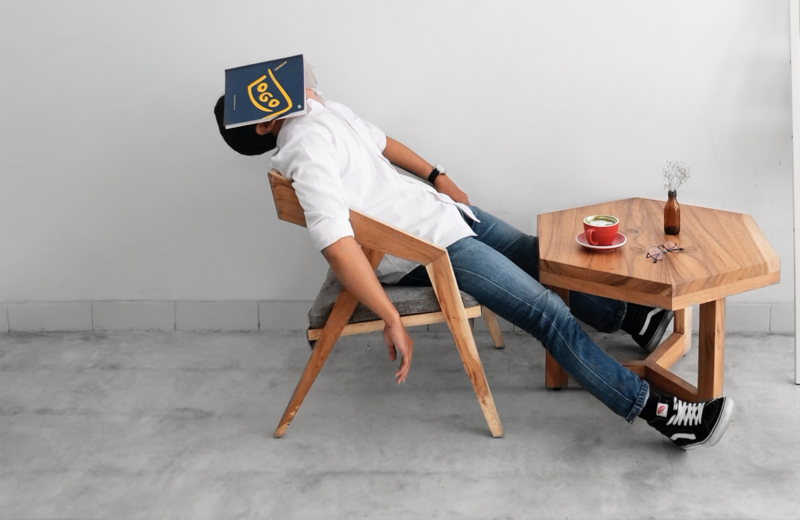There has likely been more than one night where you have spent countless hours tossing and turning. And if you have, you also know exactly how you feel the very next day, cranky, out of sorts, and just plain tired. But did you know that when you don’t get the recommended amount of sleep each night (which is 7 to 9 hours), it does much more than just put you in a grumpy and groggy mood?
In fact, the long-term side effects from not getting enough sleep are actually very real, and very dangerous. Not only is it going to drain your mental abilities, but it is also going to put your physical health at a huge risk too. Science has actually linked a poor quality of sleep to a number of different health problems, some of which vary from gaining excess weight, to having a weak immune system.
Here is exactly why you want to be sure and get enough sleep every night, as well as what happens to your body when you don’t.
Main Causes of Sleep Deprivation
When it comes to sleep deprivation, it is essentially caused when you are not getting a consistent amount, or quality of it. When you get less than a total of 7 hours of sleep regularly, there are several different health consequences that are able to affect your whole body. This has also been known to be caused by having a certain type of sleep disorder as well.
It’s no big secret that your body needs a certain amount of sleep to recharge itself. Think of it like eating food, your body needs food in order to function properly. When you are sleeping, your body is able to heal and restore everything that needs to be healed and restored. This can be physically, as well as chemically. In fact, your brain is able to forge new connections and help improve your memory when you are sleeping.
When you don’t get enough sleep, your body systems and your brain are not going to be able to function properly, which will eventually lead you to having a lowered quality of life. A review that was done back in 2010 actually revealed that when you don’t get enough sleep, you are actually increasing your likeliness of having an early death.
Some of the most noticeable symptoms of sleep deprivations will include:
- Being excessively sleepy
- Extra irritability
- Fatigue during the daytime
- Excessive yawning
When you consume stimulates, such as caffeine, they are not quite enough to override your body’s requirement for getting enough sleep. In fact, these stimulants can actually make your sleep deprivation even worse, as they are able to make falling asleep at night much more difficult than normal. Which, this can potentially lead you to experiencing a cycle of insomnia during the night, which would then be followed by even more caffeine consumption on your part during the day to try and stay awake.
Whether you think it does or not, when you are getting chronic sleep deprivation, it can interfere with not just your body’s internal systems, but it is also able to do even more damage than you ever imagined was possible.
Here is exactly how not getting enough sleep is able to affect your body.
Your Central Nervous System
In case you weren’t aware, your central nervous system is actually considered to be the central highway of your entire body. Getting enough sleep every night is crucial to keeping your body’s ‘central highway’ functioning properly, however, chronic insomnia is able to disrupt your central nervous system from sending information to where it needs to go.
When you are sleeping, you have pathways that are formed between your nerve cells (neurons), that are in your brain and allow you to remember all of the new information that you have learned during the day. When you are deprived of sleep, you are more likely to have an exhausted brain, which in turn will mean that it is unable to perform it’s required daily duties as well.
Another side effect of not getting enough sleep is having a much more difficult time trying to learn new things, or even concentrate. Signals within your body can potentially be delayed, lowering your coordination, or even increasing the amount of accidents that you experience during the day.
When you experience sleep deprivation, you are also going to negatively affect your emotional state and mental abilities as well. You may notice that you are experiencing mood swings on a much higher level, or even notice that you have become much more impatient than you would normally be. On top of that, not getting enough sleep is also able to affect your ability to make decisions, and even your creativity.
If you are experiencing sleep deprivation for a loner period of time, you can actually start having hallucinations, hearing and seeing things that are not really even there. This lack of sleep is even able to trigger what is known as ‘mania’, in people that have been diagnosed with bipolar disorder. Some of the other phycological risks of not getting enough sleep include:
- Anxiety
- Paranoia
- Impulsive behavior
- Depression
- Suicidal thoughts
On top of all of these potential symptoms, there is a good chance that you will also experience microsleep, meaning that you are awake, but will fall asleep for several seconds or minutes without even knowing that you have just fallen asleep for that short period of time.
If you do experience microsleep, just know that it is completely out of your control and is also extremely dangerous. Not only can you be driving when this happens, but you can also be much more prone to falling or tripping, which will result in even more injuries.
Your Immune System
When you are sleeping, your immune system is able to produce a protective, infection fighting cytokine, which it then uses to help combat any type of foreign invader that it may come into contact with. These can include things such as viruses and bacteria.
These cytokines are also helpful when it comes to your quality of sleep, as they give your immune system much more energy to help fight any potential illnesses or diseases.
When you are experiencing sleep deprivation, you are essentially going to prevent your body’s immune system from fortifying its protective forces. When you don’t get enough sleep, your body is potentially at risk from being attacked by invaders, taking even longer than normal to recover from any potential illnesses.
When you suffer from long-term sleep deprivation, it will also increase your risk for some chronic conditions, those of which include heart disease and diabetes.
Your Respiratory System
Your relationship between your respiratory system and the amount of sleep you get can go both ways. There is actually a breathing disorder that some people suffer from during the night that is called obstructive sleep apnea, or OSA. If you are suffering from this, it will not only interrupt your sleep, but will also lower the quality of it as well.
While you are waking up throughout the night, it can very easily cause sleep deprivation. This can leave you more susceptible to different respiratory infections, some of which include the flu, and even the common cold. Not getting enough sleep is even able to make some existing respiratory diseases even worse, the main one being chronic lung illness.
Your Digestive System
Similar to not eating well or not exercising, not getting enough sleep is actually one of the biggest risk factors involved with becoming overweight, or worse, obese. The amount of sleep you get is directly affecting two different hormones, ghrelin and leptin. These two hormones are solely responsible for controlling your feelings of hunger, as well as hunger.
The hormone leptin lets your brain know that you have had enough food to eat, giving your body the signal to stop eating. When you don’t get enough sleep, your brain is not going to produce as much leptin, which will in turn raise your ghrelin levels. Ghrelin is a hormone that increases your appetite. The flux in these two hormones can explain why nighttime snacking is such a real thing, or why somebody is able to overeat later in the night.
Not getting enough sleep is also able to make you not want to exercise. Over a period of time, this reduced amount of physical activity is actually able to cause weight gain, as you are not able to burn off the same amount of calories or build muscle mass.
On top of that, your sleep deprivation is also going to tell your body to release a higher amount of insulin whenever you eat. This is not good, as insulin is what controls your blood sugar levels. A higher amount of insulin means that your body is going to increase the amount of fat that your body stores, as well as increase your risk for type 2 diabetes.
If you are suffering from sleep problems and are consistently not getting enough sleep, you should talk with your doctor ASAP. Simply let them know what is going on and they will be able to help you figure out exactly why it is you are having trouble sleeping.

